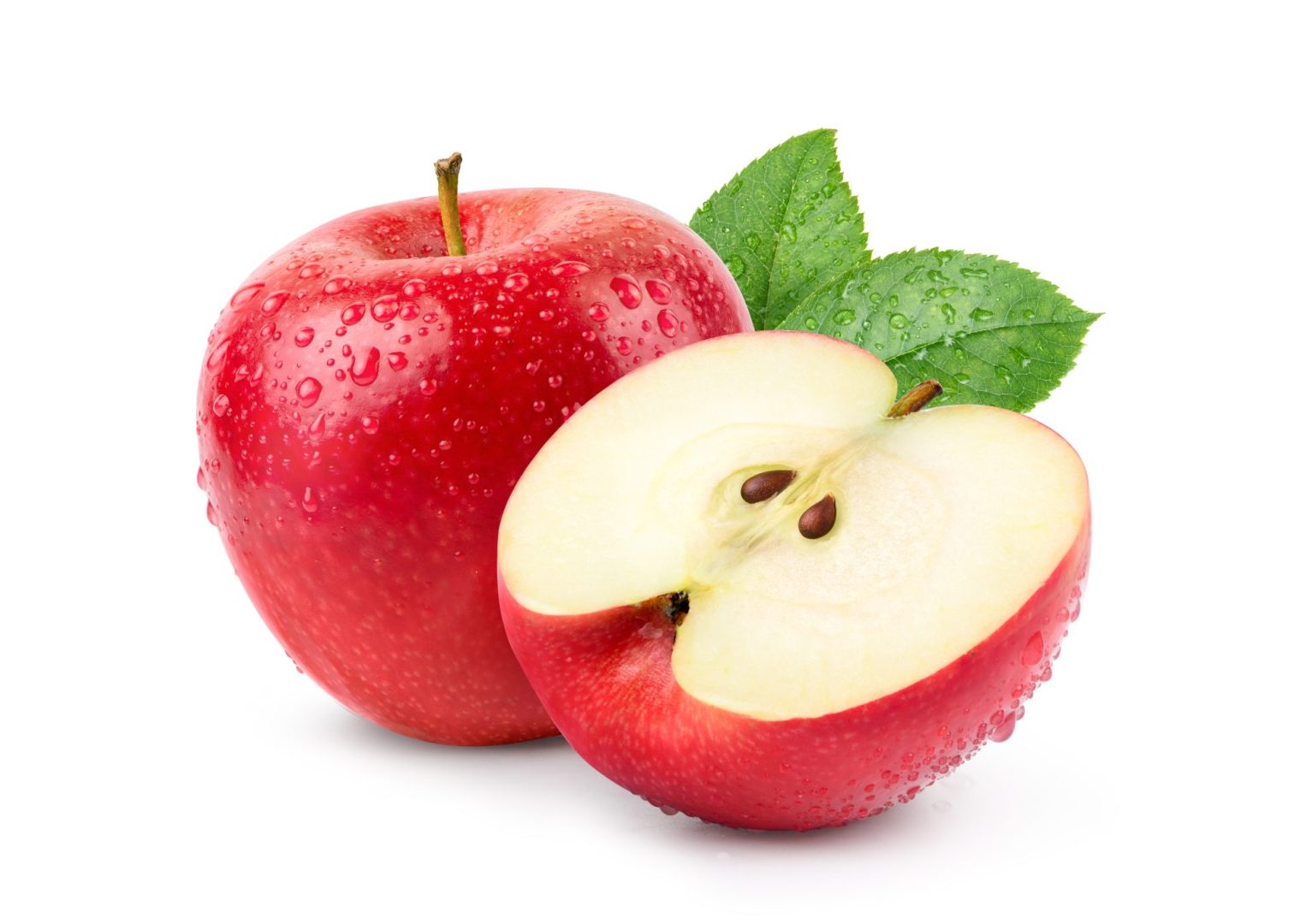The familiar saying about apples keeping doctors away might contain more truth than most people realize. This humble fruit packs an impressive array of nutrients and compounds that work together to support multiple aspects of health, from cardiovascular function to digestive wellness.
Apples rank among the most widely consumed fruits globally, yet many people don’t fully appreciate the remarkable health benefits hidden beneath their crisp exterior. Each medium apple delivers a complex combination of fiber, vitamins, minerals, and plant compounds that work synergistically to promote optimal health.
Unlike many superfoods that require special preparation or significant expense, apples offer convenience and affordability while delivering substantial nutritional value. Their natural portability makes them perfect for busy lifestyles, while their satisfying crunch and natural sweetness make healthy eating enjoyable rather than restrictive.
Understanding the specific ways apples support your health provides motivation to incorporate more of this versatile fruit into your daily routine. The following benefits represent the most significant and well-documented ways that regular apple consumption contributes to better health outcomes.
Heart health gets a major boost from apple compounds
Apples contain a powerful combination of nutrients that work together to protect cardiovascular health through multiple mechanisms. The soluble fiber in apples helps reduce cholesterol levels by binding to cholesterol particles in the digestive system and carrying them out of the body before they can be absorbed.
Pectin, the primary type of soluble fiber found in apples, forms a gel-like substance in your digestive tract that effectively traps cholesterol and bile acids. This process forces your liver to use existing cholesterol stores to produce new bile acids, naturally lowering your overall cholesterol levels.
The antioxidants in apples, particularly flavonoids like quercetin, help protect blood vessels from inflammation and oxidative damage. These compounds prevent the oxidation of LDL cholesterol, a crucial step in the development of arterial plaque that can lead to heart attacks and strokes.
Potassium in apples supports healthy blood pressure by helping your body maintain proper fluid balance and supporting normal muscle function, including the heart muscle. Regular consumption of potassium-rich foods like apples is associated with lower blood pressure readings and reduced cardiovascular disease risk.
The polyphenols in apple peels provide additional cardiovascular protection by improving the flexibility of blood vessels and supporting healthy circulation. These compounds help blood vessels dilate properly in response to increased blood flow demands, reducing strain on the cardiovascular system.
Weight management becomes easier with apple fiber
Apples provide exceptional support for weight management through their high fiber content and low calorie density. A medium apple contains about 95 calories while providing 4 grams of fiber, creating a filling snack that satisfies hunger without contributing excessive calories to your daily intake.
The fiber in apples slows digestion and promotes feelings of fullness that can last for hours after eating. This satiety effect helps reduce overall calorie intake by preventing overeating at meals and reducing cravings for high-calorie snacks between meals.
Pectin fiber specifically helps regulate blood sugar levels by slowing the absorption of sugars from the digestive tract. This prevents the rapid blood sugar spikes and crashes that often trigger hunger and cravings for more food shortly after eating.
The natural sweetness of apples can satisfy cravings for sugary snacks while providing nutrients that processed sweets lack. Choosing apples instead of cookies, candy, or other high-calorie treats significantly reduces calorie intake while supporting better nutrition.
The water content in apples adds volume to your diet without adding calories, helping you feel satisfied on fewer total calories. This combination of water and fiber creates physical fullness in your stomach while providing minimal caloric impact.
Digestive health improves with regular apple consumption
The fiber content in apples supports healthy digestion by promoting regular bowel movements and feeding beneficial bacteria in your gut. Both soluble and insoluble fiber work together to maintain optimal digestive function and prevent common gastrointestinal problems.
Soluble fiber from apples acts as a prebiotic, providing fuel for beneficial bacteria in your large intestine. These bacteria ferment the fiber into short-chain fatty acids that nourish the cells lining your colon and support overall gut health.
The insoluble fiber in apple peels adds bulk to stool and helps food move efficiently through your digestive system. This prevents constipation while supporting regular elimination that removes waste products and toxins from your body.
Apple consumption may help maintain the balance of bacteria in your gut microbiome, supporting populations of beneficial bacteria while discouraging harmful bacterial overgrowth. A healthy gut microbiome contributes to better immune function and overall health.
The natural enzymes in fresh apples can aid in the digestion of other foods when apples are eaten as part of meals. These enzymes help break down nutrients for better absorption while reducing digestive stress and discomfort.
Blood sugar control gets natural support from apple nutrients
Despite containing natural sugars, apples actually help regulate blood sugar levels rather than causing problematic spikes. The fiber content slows sugar absorption, preventing the rapid blood glucose increases that can occur with processed foods containing added sugars.
The polyphenols in apples may help improve insulin sensitivity, allowing your cells to respond more effectively to insulin and maintain stable blood sugar levels. This improved insulin function reduces the risk of developing type 2 diabetes over time.
Eating apples with their peels provides maximum blood sugar benefits, as many of the beneficial compounds are concentrated in or just beneath the skin. The combination of fiber and polyphenols in whole apples creates synergistic effects that support healthy glucose metabolism.
The natural fructose in apples is balanced by fiber and other nutrients that moderate its absorption and metabolism. This creates a gentler impact on blood sugar compared to consuming equivalent amounts of added sugars from processed foods.
Regular apple consumption as part of a balanced diet may help reduce the risk of developing insulin resistance, a condition that often precedes type 2 diabetes. The nutrients in apples support healthy cellular function and glucose metabolism.
Brain health benefits from apple antioxidants
The antioxidants in apples, particularly those concentrated in the peel, provide significant protection for brain cells against oxidative stress and inflammation. These compounds help maintain cognitive function and may reduce the risk of neurodegenerative diseases.
Quercetin, a powerful flavonoid abundant in apple peels, crosses the blood-brain barrier and provides direct protection to brain tissue. This antioxidant helps prevent the cellular damage that contributes to cognitive decline and memory problems associated with aging.
The natural sugars in apples provide steady fuel for brain function without the dramatic fluctuations that can impair concentration and mental clarity. This stable energy supply supports consistent cognitive performance throughout the day.
Apple consumption may help maintain healthy blood flow to the brain by supporting cardiovascular health and preventing the formation of arterial plaque that can reduce cerebral circulation. Adequate brain blood flow is essential for optimal cognitive function.
The acetylcholine-supporting compounds in apples may help maintain memory function and learning ability. Acetylcholine is a neurotransmitter crucial for memory formation and cognitive processing that naturally declines with age.
Cancer prevention gets support from apple phytochemicals
Apples contain numerous plant compounds that demonstrate cancer-fighting properties in laboratory studies. These phytochemicals work through various mechanisms to protect cells from the damage that can lead to cancer development.
The antioxidants in apples help neutralize free radicals that can damage DNA and trigger cancerous changes in cells. Regular consumption of antioxidant-rich foods like apples may reduce overall cancer risk by maintaining cellular health and preventing harmful mutations.
Flavonoids in apples, including quercetin and catechins, demonstrate anti-inflammatory properties that may help prevent the chronic inflammation associated with increased cancer risk. These compounds help maintain healthy cellular environments that resist cancerous changes.
The fiber in apples supports colon health by promoting regular elimination of waste products and potentially harmful substances from the digestive tract. This efficient waste removal may reduce exposure to carcinogenic compounds and lower colorectal cancer risk.
Pectin fiber specifically may help bind to potential carcinogens in the digestive system and facilitate their removal from the body before they can cause cellular damage. This protective mechanism adds another layer of cancer prevention benefits.
Maximizing apple health benefits through smart choices
Choosing organic apples when possible reduces exposure to pesticide residues while maximizing nutrient content. Organic apples often contain higher levels of antioxidants and beneficial compounds compared to conventionally grown varieties.
Eating apples with their peels provides maximum nutritional benefits, as many of the most valuable compounds are concentrated in or near the skin. Washing apples thoroughly removes surface contaminants while preserving beneficial nutrients.
Different apple varieties offer slightly different nutritional profiles, so eating a variety of types throughout the week provides the broadest range of beneficial compounds. Red varieties often contain higher levels of certain antioxidants, while green varieties may have different fiber compositions.
Storing apples properly helps maintain their nutritional value and extends their shelf life. Refrigerated apples retain more of their beneficial compounds and stay fresh longer than those stored at room temperature.
Fresh apples provide more health benefits than processed apple products like juice or sauce, which often contain added sugars and lack the fiber content that contributes to many of apples’ health benefits.
Incorporating more apples into your daily routine
Adding apples to your regular eating routine doesn’t require complicated meal planning or special preparation. Simple strategies can significantly increase your apple consumption while enhancing the nutritional value of your overall diet.
Keep apples readily available in your kitchen, car, or office to make healthy snacking convenient. Having apples easily accessible makes them more likely to be chosen over less healthy options when hunger strikes.
Pair apple slices with protein sources like nut butter or cheese to create balanced snacks that provide sustained energy and enhanced satiety. This combination balances the natural sugars in apples with protein and healthy fats.
Add chopped apples to salads, oatmeal, or yogurt to increase fiber content and natural sweetness without added sugars. These combinations create more satisfying meals while boosting overall nutritional value.
Use apples as natural sweeteners in homemade baked goods, reducing the need for added sugars while contributing beneficial nutrients and fiber. Applesauce can replace some of the oil or butter in recipes while maintaining moisture and flavor.
The remarkable health benefits of apples make them worthy of their reputation as nature’s medicine. From supporting heart health and weight management to protecting against chronic diseases, this accessible fruit delivers impressive nutritional value in a convenient, delicious package. Making apples a regular part of your diet represents one of the simplest and most effective steps you can take toward better health.


















